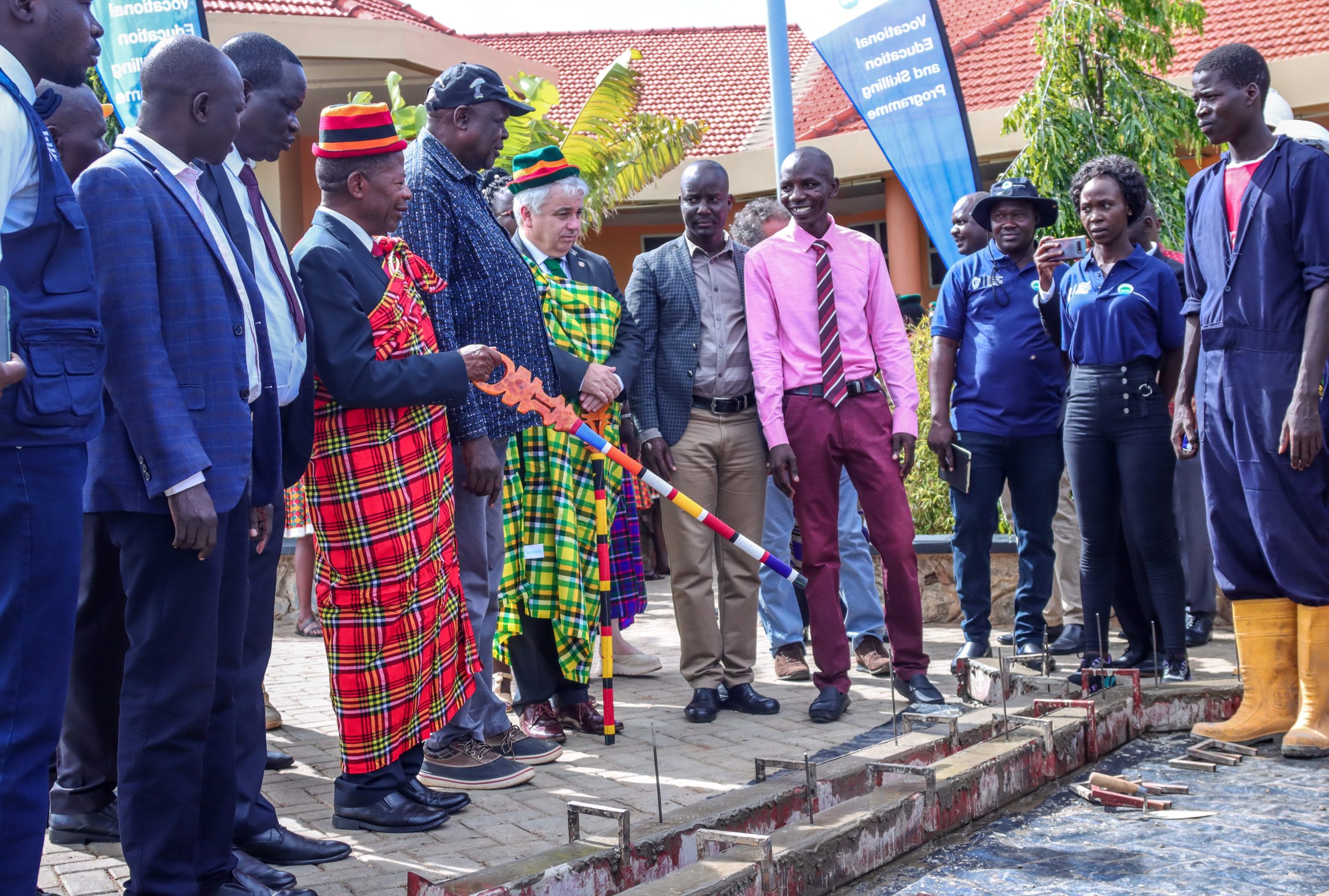A total of 3,500 youth in the Karamoja sub-region, Uganda will be equipped with various vocational skills as part of the Sh20.8b Vocational Education and Skilling Programme (VESP).
The Embassy of Ireland in Uganda is providing funds for the five-year programme, which will be implemented by AVSI in collaboration with Co-operation and Development at Kotido Technical Institute in Kotido district; St Daniel Comboni Polytechnic in Moroto district and Nakapiripirit Technical Institute in Nakapiripirit district.
The programme aims at increasing gainful employment of 3,500 vulnerable youth, with a 50% representation of females aged 16–30 from the rural communities of Kotido, Moroto and Nakapiripirit districts.
In her speech delivered by the state minister for higher education, John Chrysostom Muyingo, during the launch of the programme the First Lady and Minister of Education and Sports, Mrs. Janet Museveni, thanked the people of Karamoja for attaining an important milestone in the area’s development. She said the significant achievement not only gives many more young people an alternative pathway to education, but also provides them with the opportunity to develop skills to reach their full potential. “I call upon the civic and political leadership in the region to educate the communities about the advantages of skills development through outreach initiatives,” she said. “This awareness creation will promote community ownership of the project as well as inspire parents and guardians to support their children’s access to vocational education training, thus gradually encouraging a shift in focus from exclusive pastoralism to the service sector, which is crucial for the transformation of the Karamoja region,” the First Lady said.
Skills, Market relevance
Mrs. Janet Museveni said by acquiring marketable skills in masonry, carpentry, welding and metal fabrication, entrepreneurship, tailoring and technology, the youth can secure employment or even establish their own businesses. The First Lady added that this will provide employment opportunities, reduce poverty and support the livelihoods of many more people in their communities. Mrs. Museveni said the Technical Vocational Education and Training(TVET) policy emphasizes the development of relevant and up-to-date curricula that align with the needs of industries and local job markets. “This offers the learners opportunities for internships, apprenticeships and other practical experiences in real-life settings, ultimately improving the caliber and applicability of vocational education,” the First Lady said. She said another key aspect of the TVET policy is the recognition of prior learning, which allows individuals to receive credit for the skills and knowledge acquired through informal or non-formal means.
The implementation strategy
Rita Larok, the programme manager at AVSI, said the youth will be identified with the help of local leaders, and their needs will be assessed before they are enrolled for formal or informal skilling. She said on top of the marketable vocational skills, the youth will be trained in life skills, the right work mindset, and financial literacy, among others, and will be given start-up kits to get them going. John Makoha, the AVSI country representative in Uganda, asked the district local governments to take ownership of the programme and offer all the needed support for the successful delivery of services to the communities. “We keep Government by our side because they understand the terrain better, and the successes of the programme lies in their hands,” he said.





